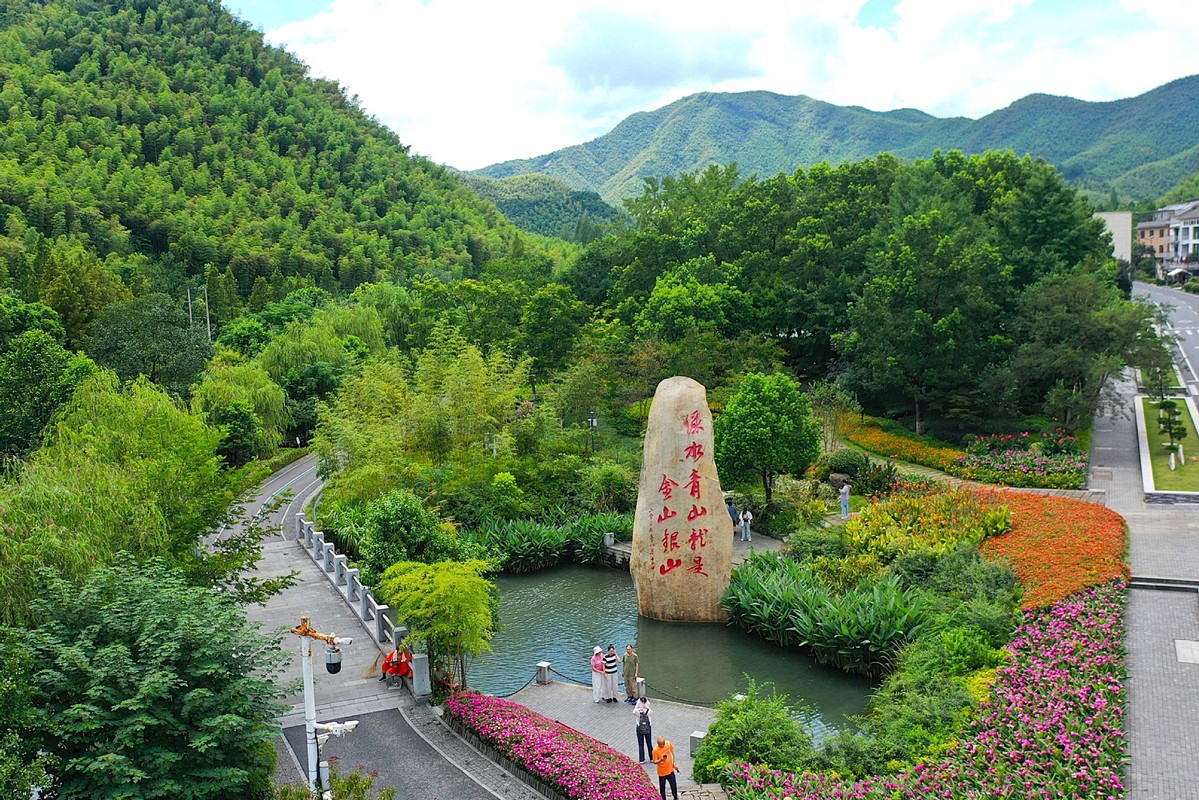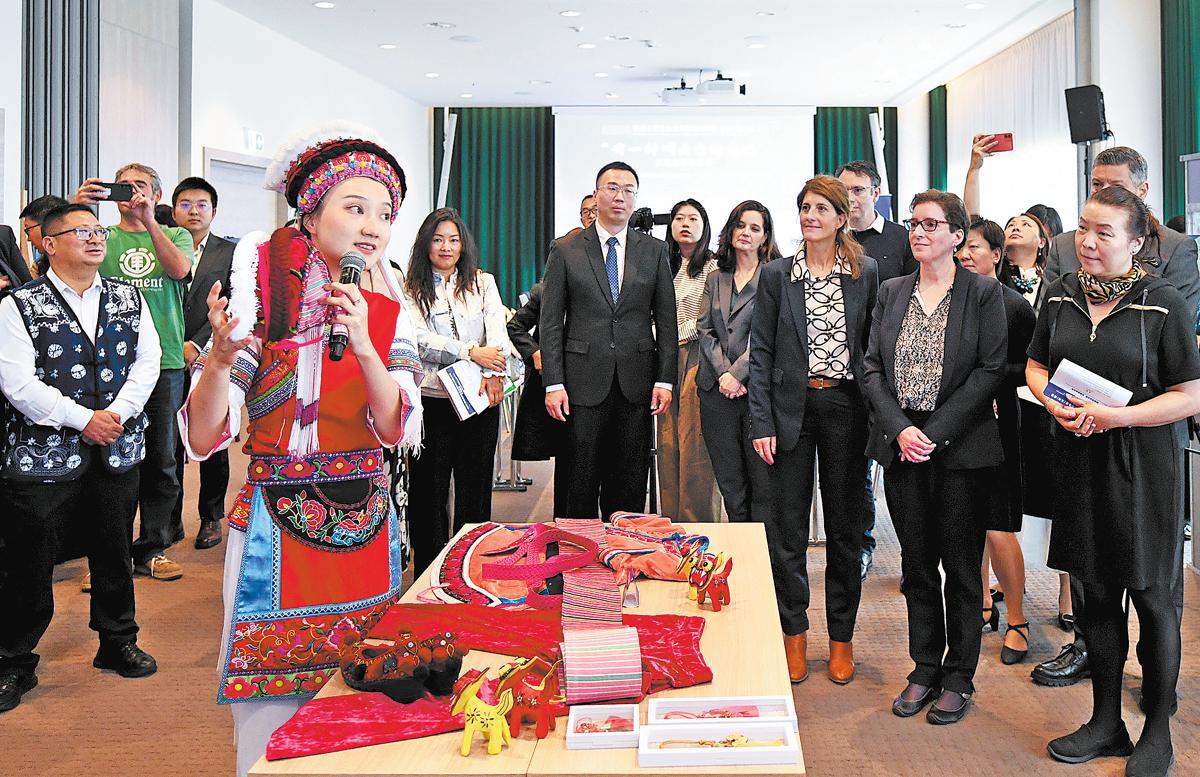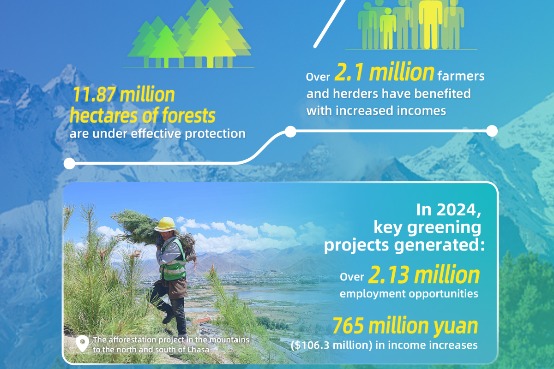Xi's ecological vision provides?global solutions


Backed by numerous successful examples, President Xi Jinping's concept that "lucid waters and lush mountains are invaluable assets" presents crucial solutions for the global community to balance economic growth and environmental conservation.
In an exclusive interview with China Daily ahead of the concept's 20th anniversary, Yu Hai, deputy director of the Research Center for Xi Jinping Thought on Ecological Civilization, emphasized China's dedication to applying this concept in international cooperation to benefit the global community, especially developing nations.
"Under the scientific guidance of Xi Jinping Thought on Ecological Civilization, China has achieved remarkable accomplishments in exploring pathways and models that help transform 'lucid waters and lush mountains' into 'invaluable assets'," Yu said.
Xi, then secretary of the Communist Party of China Zhejiang Provincial Committee, first proposed the concept that "lucid waters and lush mountains are invaluable assets" during an inspection in Anji county, Zhejiang province, on Aug 15, 2005.
President Xi has actively promoted the concept on many international occasions, calling for building a common homeland of coordinated advancement of economy and the environment.
"His advocacy provides intellectual enlightenment for the international community to explore the path of green development and guidance for the global sustainable development agenda," said Yu.
As the world's largest developing country, China always maintains a global vision and demonstrates a strong sense of responsibility and mission as a major power, Yu emphasized.
"Firmly adhering to the philosophy of 'teaching people how to fish rather than simply giving them fish', China has woven the concept into collaborative efforts such as the Belt and Road Initiative and South-South Cooperation, ensuring concrete benefits, particularly for developing nations," he said.

Localized adoption
Through the BRI, for instance, China has been implementing green projects such as solar, wind and hydroelectric power to share its approaches, technologies and experiences in practicing the concept, Yu added.
He said that this effort promotes the concept's localized adoption, making significant contributions to enhancing the ecological and environmental governance capabilities of developing countries and jointly building a clean and beautiful world.
The urgency to advance global environmental governance has grown, as the world rapidly advances the shift toward green and low-carbon initiatives. Against this backdrop, Yu said, the principle of "ecological and economic coordinated development", which is embedded in the concept, has become a widely accepted core tenet and central theme in the global drive for sustainable development.
The late John Cobb, a renowned United States theologian, philosopher and environmentalist known as the father of green GDP — an economic indicator that adjusts conventional GDP by factoring in the environmental costs and benefits associated with economic activities — argued, for example, that the concept proposed by Xi dissolves the dualism between economic development and environmental protection, demonstrating to the world that environmental conservation and economic development can go hand in hand.
Yu said, "As we stand at the historical milestone of the 20th anniversary of this concept, we should strive to be active promoters and exemplary practitioners of the concept, actively participating in, contributing to and leading in the building of a global community with a shared future for humanity."
Innovative models
Yu also said that different government departments and regions in China have carried out extensive practices, exploring diverse pathways and innovative models, supported by a series of institutional arrangements implemented at the national level.
For instance, the Ministry of Ecology and Environment has selected 240 practice innovation bases to promote the concept, according to Yu. He highlighted Dengkou county in the Inner Mongolia autonomous region as a model in implementing the concept.
As the county progresses in desertification control, it is also actively pursuing economic benefits by promoting ecological industries that support this effort, such as traditional Chinese medicine and solar power development, Yu noted, adding that local authorities have also employed supportive policy tools to enhance enthusiasm for sand prevention and control.
According to the Dengkou government, the forest and grass coverage in its sandy areas reached more than 37 percent as of 2023, compared with merely 0.04 percent in the 1950s.
The annual output value of the county's ecological industries has surpassed 1 billion yuan ($139.4 million), directly increasing the income of more than 5,000 households in sandy areas.
Yu said that the Dengkou case, among many others, vividly showcases China's advancements in promoting ecological civilization.
He also highlighted the country's vision of making the concept not only a distinctive symbol of China's modernization, but also a contribution of Eastern wisdom to the development of a new form of human civilization.
"By providing enhanced guidance for global ecological civilization and a stronger impetus for the world's economic recovery, we aim to collaborate with the international community to foster a harmonious coexistence between humanity and nature on our planet," Yu said.
houliqiang@chinadaily.com.cn
























